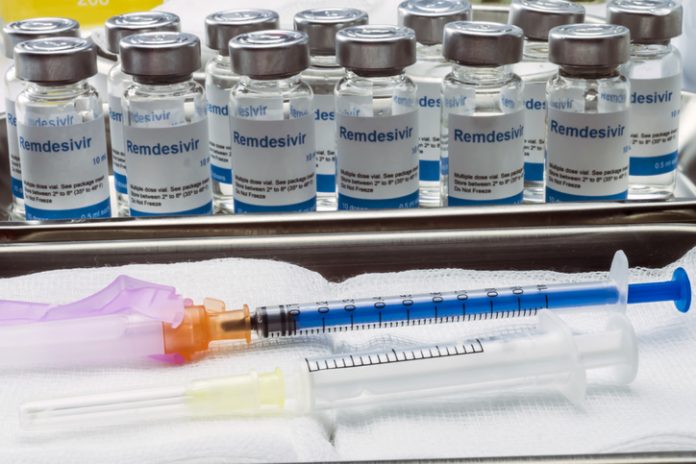
By Harry Painter | Heart and Daily News
Two widows who lost their husbands after they were given remdesivir filed a wrongful death lawsuit in Ramsey County District Court in Minnesota against HealthPartners, Inc. and Regions Hospital in St. Paul, where their spouses died while receiving care for COVID-19.
One plaintiff was dismissed from the lawsuit without prejudice, meaning she may file suit again. The remaining complainant, Nicole Riggs, says her request that her father receive zinc, vitamin D, vitamin C, ivermectin, and hydroxychloroquine when he was admitted to Regions with COVID-19 was denied, according to an article published by Alpha News online, on December 29.
“Instead, Riggs claims her father was given over 50 medications and eventually put on a ventilator,” states Alpha News. Riggs’ father died after he was eventually transferred to another hospital.
‘Profits for the Wrongdoers’
The two women are part of a weekly support group for families who lost loved ones to COVID-19. Their attorney, Andrew Barnhart, was an emergency medical technician during the pandemic and started the organization Medical Justice MN, to work on behalf of people injured or killed by the COVID-19 treatment protocol.
Federal courts have allowed wrongful death suits over COVID treatments to go forward in other states, such as Louisiana. The family of actor Bill Paxton settled a wrongful death suit in California in 2022. Litigation over a death allegedly caused by remdesivir is ongoing in California.
‘Lack of Informed Consent’
Officially recommended treatments such as the antiviral drug remdesivir harmed and killed patients, says Barnhart.
“We hope that as these financially incentivized harmful practices are brought to light, public awareness of this mistreatment will cause hospitals to change their ways,” Barnhart said.
Barnhart says there are commonalities among many of the stories he has heard about lackluster COVID care. “Some of the most egregious are intense and prolonged isolation of the patient from family members and other advocates and for COVID-19 protocol treatments,” said Barnhart.
‘Hospitals Failed’
One roadblock to getting justice for victims, according to Barnhart, is the Public Readiness and Emergency Preparedness (PREP) Act.
“The PREP Act is a serious hurdle because it purports to give immunity to hospitals for administering COVID-19 countermeasures,” said Barnhart. “However, we are finding that in some of these cases, the hospitals failed to detect and treat non-COVID-19-related illnesses, we think, partly due to their hyper-focus on financially incentivized COVID-19 protocol treatments.”
Barnhart added, “Such failures should not be covered by the PREP Act immunities.”
Early Treatments Suppressed
It was widely reported during the pandemic that therapeutic remedies such as hydroxychloroquine and ivermectin were ignored or suppressed in favor of officially recommended drugs such as Gilead Sciences’ remdesivir.
Doctors were sometimes penalized for choosing to treat patients with off-label treatments such as hydroxychloroquine and ivermectin.
The Food and Drug Administration (FDA) issued an Emergency Use Authorization for remdesivir in May 2020, though it admitted there is “limited information known about the safety and effectiveness of using remdesivir to treat people in the hospital with COVID-19.”
Remdesivir’s Side Effects Ignored
The wrongful death lawsuit filed by Barnhart states that remdesivir “poisons the kidneys, causes the lungs to fill with fluid, damages other organs, and published studies show a causal connection between remdesivir and the death of heart cells, heart attacks, hypotension, and bradycardia.”
The plaintiffs allege that hospitals were incentivized to treat patients with remdesivir because they “billed a base amount of $3,200 for each Remdesivir treatment administered despite the production cost of each vial of Remdesivir being $9.”
Hospitals could also bill as much as $20,000 per patient receiving remdesivir, the lawsuit claims.
Legionnaires’ Lessons Forgotten
Scott Jensen, M.D., a former Minnesota legislator and gubernatorial candidate who nearly had his medical license taken for promoting alternative views, contrasts the COVID protocols to what happened after the 1976 Philadelphia Legionnaires’ disease outbreak.
Jensen said he and other responding doctors were allowed to provide alternative treatments to their patients. “We gave them our best antibodies, and they weren’t responding. They continued to die at an alarming rate, and we didn’t have the causative agent identified,” said Jensen. Ultimately, the agent was identified as the bacteria Legionella pneumophila.
“Doctors kept experimenting,” said Jensen, until they “stumbled on the fact that erythromycin—an old-fashioned, longstanding generic cheap medication—stopped the pneumonia and helped people heal.”
That lesson was forgotten in 2020. “That didn’t happen with COVID, because early on, ivermectin and hydroxychloroquine were given the kiss of death by a lot of policymakers,” said Jensen.
Let Doctors Be Doctors
“As a general rule, physicians have always been allowed to repurpose drugs or use them off-label to do what we thought might work as long as we had the informed consent of patients,” said Jensen.
Today, most physicians would acknowledge the failures of the federal government during the pandemic. “When politicians dabble in how physicians should practice medicine, it’s a very slippery slope,” said Jenson, who called for more protections.
“You put in protections through your licensing boards in the various 50 states,” Jensen said. “We could put a shield of protection up for physicians and patients (by explicitly authorizing doctors to prescribe off-label treatments). “Patients feel like they’ve been abandoned and betrayed by their physicians, their clinics, as well as the public health people,” said Jensen.